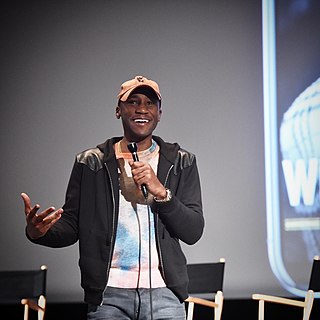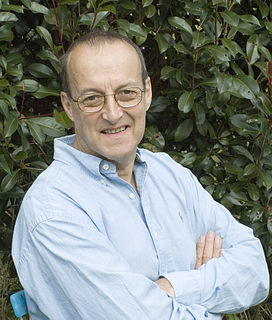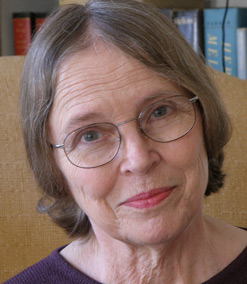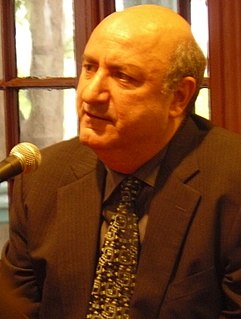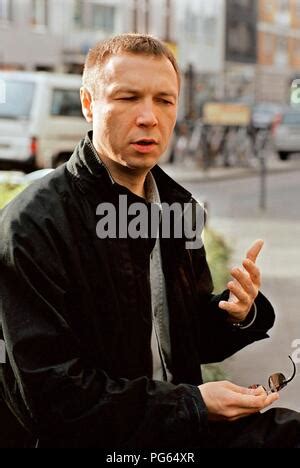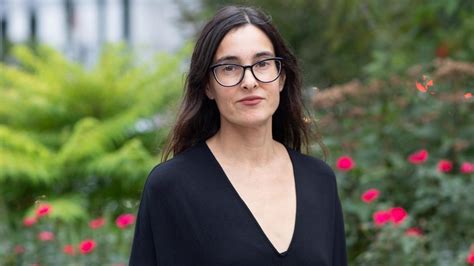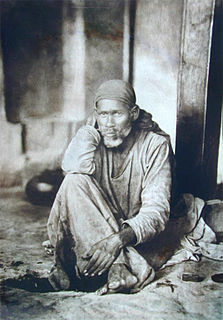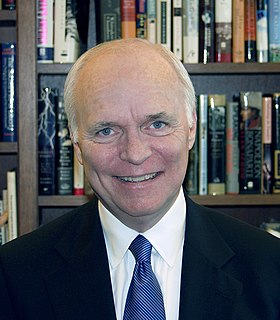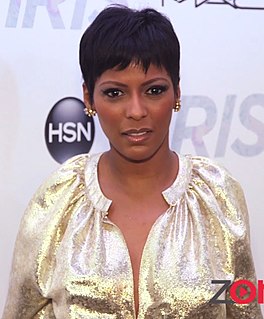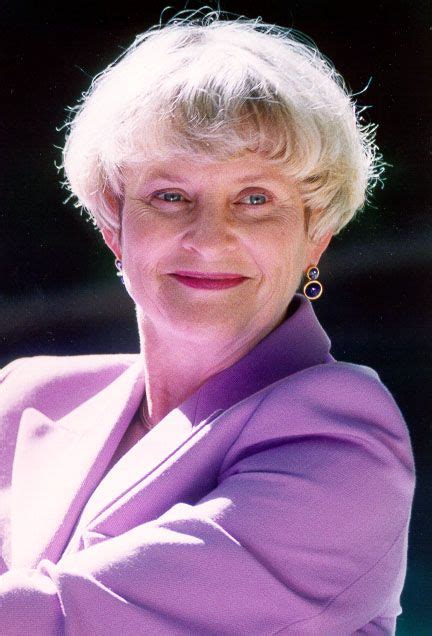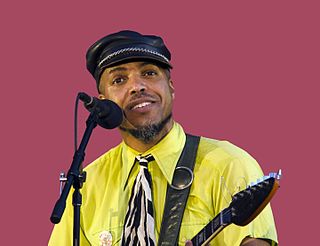Top 1200 Reading Life Quotes & Sayings - Page 20
Explore popular Reading Life quotes.
Last updated on November 15, 2024.
Now I see why reading was illegal for black people during slavery. I discover that I think in words. The more words I know, the more things I can think about. My vocab and thoughts grow together like the stem and petals of a flower. Reading was illegal because if you limit someone's vocab, you limit their thoughts. They can't even think of freedom because they don't have the language to.
I have always believed in the magic of childhood and think that if you get your life right that magic should never end. I feel that if adults cannot enjoy a children’s book properly there is something wrong with either the book or the adult reading it. This of course, is just a smart way of saying I don't want to grow up.
You can sort of start to write around 10. You also become a good reader around that time, and you want to imitate the thing that you love. I got praise for it, and then I found that it was a great way of translating my life, so I would write little stories and plays and things. At that point, it was kids' books that I was reading.
I seem to have three categories of readers. The first is nonbelievers who are glad that I am reading the Bible so they don't have to bother. The second group, which is quite large, is very Biblically literate Jews. And the third, which is also very large, is Christians, most of them evangelical. The evangelical readers and the Jewish readers have generally been very encouraging, because they appreciate someone taking the book they love so seriously, and actually reading it and grappling with it.
The mother memories that are closest to my heart are the small gentle ones that I have carried over from the days of my childhood. They are not profound, but they have stayed with me through life, and when I am very old, they will still be near . . . Memories of mother drying my tears, reading aloud, cutting cookies and singing as she did, listening to prayers I said as I knelt with my forehead pressed against her knee, tucking me in bed and turning down the light. They have carried me through the years and given my life such a firm foundation that it does not rock beneath flood or tempest.
We [Panthers] have not said much about the homosexual at all, but we must relate to the homosexual movement because it is a real thing. And I know through reading, and through my life experience and observations that homosexuals are not given freedom and liberty by anyone in the society. They might be the most oppresed people in the society.
I doubt if I shall ever have time to read the book again -- there are too many new ones coming out all the time which I want to read. Yet an old book has something for me which no new book can ever have -- for at every reading the memories and atmosphere of other readings come back and I am reading old years as well as an old book.
Writers of historical fiction are often faced with a problem: if they include real-life people, how do they ensure that their make-believe world isn't dwarfed by truth? The question loomed large as I began reading 'The Black Tower', Louis Bayard's third foray into historical fiction and fifth novel overall.
But in reading Shakespeare and in reading about Edward de Vere, it's quite apparent that when you read these works that whoever penned this body of work was firstly well-travelled, secondly a multi-linguist and thirdly someone who had an innate knowledge of the inner workings and the mechanisms of a very secret and paranoid Elizabethan court. Edward de Vere ticks those three boxes and many more. William of Stratford gave his wife a bed when he died [his second best bed].
For me as a kid, reading cyberpunk was like seeing the world for the first time. Gibson's Neuromancer wasn't just stylistically stunning; it felt like the template for a future that we were actively building. I remember reading Sterling's Islands in the Net and suddenly understanding the disruptive potential of technology once it got out into the street. Cyberpunk felt urgent. It wasn't the future 15 minutes out - it was the future sideswiping you and leaving you in a full-body cast as it passed by.
It is a remarkable fact that we can never read or hear of the labors which our Lord and Savior Jesus Christ performed, without taking pleasure in it, while, on the other hand, there is nothing so interesting in the life and history of any other individual but what by hearing or reading it time and time again we become tired of it.
in reading ... stories, you can be many different people in many different places, doing things you would never have a chance to do in ordinary life. It's amazing that those twenty-six little marks of the alphabet can arrange themselves on the pages of a book and accomplish all that. Readers are lucky - they will never be bored or lonely.
If we are always reading aloud something that is more difficult than children can read themselves then when they come to that book later, or books like that, they will be able to read them - which is why even a fifth grade teacher, even a tenth grade teacher, should still be reading to children aloud. There is always something that is too intractable for kids to read on their own.
I wish I had time to do more reading, but I just haven't had much time. But I still find time for writing. I've always preferred writing over reading, even though those things do go hand in hand. But when I do have time, even if it's not writing music, just writing in general - ideas and stories and things like that.
There is only one way to read, which is to browse in libraries and bookshops, picking up books that attract you, reading only those, dropping them when they bore you, skipping the parts that drag-and never, never reading anything because you feel you ought, or because it is part of a trend or a movement. Remember that the book which bores you when you are twenty or thirty will open doors for you when you are forty or fifty-and vise versa. Don’t read a book out of its right time for you.
It might be helping to explore a story visually by going to see a museum exhibit that's relevant to something that somebody's reading, or going to see a show or listening to a piece of music or cooking a meal that's in one of the stories, something practical, something kinesthetic that draws the reader in and helps them to experience the story for themselves. Those are all ways I think we can kind of come in the back door and help kids find the joy, as opposed to the chore or responsibility, of reading.
I started to concentrate more upon how the viewer looks at photographs... I would insert my own text or my own specific reading of the image to give the viewer something they might not interpret or surmise, due to their educated way of looking at images, and reading them for their emotional, psychological, and/or sociological values. So I would start to interject these things that the photograph would not speak of and that I felt needed to be revealed, but that couldn't be revealed from just looking at an image.
I love, first of all, reading and discovering what the common perception is and then trying to figure out... well, how does your life cross over into that character, or what's an angle on this that might challenge the status quo? It's just a great journey as well as an education. You're constantly being educated - it's like I'm back at school and making up for lost time.
I believe you have to write every day–make the time. It’s about having an organized mind instead of a chaotic and untidy one. There is a myth that writers are bohemian and do what they like in their own way. Real writers are the most organized people on the planet. You have to be. You’re doing the work and running your own business as well. It’s an incredibly organized state. [Also reading]…one of the things reading does do is discipline your mind. There are no writers who are not readers.
A word, and all the infinite fluctuations it may possess. Like that moment when you know you have something to say, and you know you're speaking, even, but you still have no idea how you will say it. Or the moment when, as a reader, you're reading, and you are understanding what you are reading, but still have utterly no idea what will come next for you, what precisely the author wants to say. For me, that is the ultimate level of literary depth, of literary density.
Reading is human contact, and the range of our human contacts is what makes us what we are. Just imagine you live the life of a long-distance truck driver. The books that you read are like the travelers you take into your cab. If you give lifts to people who are cultured and profound, you'll learn a lot from them. If you pick up fools, you'll turn into a fool yourself.
Suppose there were an experience machine that would give you any experience you desired. Superduper neuropsychologists could stimulate your brain so that you would think and feel you were writing a great novel, or making a friend, or reading an interesting book. All the time you would be floating in a tank, with electrodes attached to your brain. Should you plug into this machine for life, preprogramming your life experiences?...Of course, while in the tank you won't know that you're there; you'll think that it's all actually happening...Would you plug in?
In the reading and writing life, delight, for me, is where the mystery lies. Easy enough to figure out how scenes of violence or tragedy or titillation or grossness or even sentimentality can move us, but how the written word elicits delight - what Nabokov calls that shiver in the spine - is much harder to calculate and define.
I wanted to escape Small Town U.S.A. To dismiss the boundaries, to explore. My life experience came from watching movies, TV, and reading books and magazines. When your culture comes from watching TV everyday, you're bombarded with images of things that seem cool, places that seem interesting, people who have jobs and careers and opportunities.
A book is really like a lover. It arranges itself in your life in a way that is beautiful. Even as a kid, my sister, who was the eldest, brought books home for me, and I think I spent more time sniffing and touching them than reading. I just remember the joy of the book, the beauty of the binding. The smelling of the interior. Happy.
Now I would say at any given moment in American life, there are probably 45 poets in airplanes vectoring across the country heading towards...I don't know if anyone's reading it, but poets are still flying around the country going from lectern to lectern.That circuitry has become very well-established.
For instance, the notion of non-penal substitution. This idea, found in the work of the nineteenth century Scottish Reformed theologian John McLeod Campbell and based upon his reading of the letter to the Hebrews in particular, is that Christ offers up his life and death as a penitential act on our behalf, rather than as a punishment in our stead.
Jeff Chu's pilgrimage across America to discover his own place as a gay man in the Christian church as well as attitudes about being gay and Christian across denominations is at once timely, smart, poignant, disturbing, inspiring, and maddening. It's essential reading for anyone who cares about the rights of the LGBTQ community to be treated as equal citizens at every level, including the religious-which means it should be essential reading for everybody.
When you raise a child, you don't sit down and take all the rules of life, write them into a big catalog, and start reading the child all these individual rules from A to Z. When we raise a child, a lot of what we do is let the child experiment and guide the experimentation. The child basically has to process his own data and learn from experience.
We wanted to hear from viewers about why they watch or participate in call-ins on C-SPAN, ... Viewers of all ages and walks of life wrote to us, including actresses, stand-up comics, parents and students. What's clear after reading the entries is the impact that call-ins have had on the political conversation on the network.
You can make lots of mistakes, but if you give children avenues for creativity and joy, they will have resources to carry them through. For example, if cooking together, reading, listening to music, coloring, participating in sports, or taking a walk in the woods are paired with pleasure and closeness, throughout life doing these things will kindle old feelings of happiness an/or comfort.
If you intend to write as truthfully as you can, your days as a member of polite society are numbered, anyway... You must be prepared to do some serious turning inward toward the life of the imagination, and that means, I'm afraid, that Geraldo, Keith Obermann, and Jay Leno must go. Reading takes time, and the glass teat takes too much of it.
My choices, including those related to the day-to-day aspects of life, like the use of a modest car, are related to a spiritual discernment that responds to a need that arises from looking at things, at people and from reading the signs of the times. Discernment in the Lord guides me in my way of governing.
He's the reason why I write music. If he's reading this - James Taylor, I'd love to work with you! My mom would put headphones on her belly before I was born, so I've been listening to him literally all of my life. When my dad played me 'Walking Man,' I heard those chord changes and that melody, it completely blew me away.
A good book deserves an active reading. The activity of reading does not stop with the work of understanding what a book says. It must be completed by the work of criticism, the work of judging. The undemanding reader fails to satisfy this requirement, probably even more than he fails to analyze and interpret. He not only makes no effort to understand; he also dismisses a book simply by putting it aside and forgetting it. Worse than faintly praising it, he damns it by giving it no critical consideration whatever.
We like books that have a lot of dreck in them, matter which presents itself as not wholly relevant (or indeed, at all relevant) but which, carefully attended to, can supply a kind of "sense" of what is going on. This "sense" is not to be obtained by reading between the lines (for there is nothing there, in those white spaces) but by reading the lines themselves looking at them and so arriving at a feeling not of satisfaction exactly, that is too much to expect, but of having read them, of having "completed" them.
Criminal cases receive the attention of the press. The cruel and disagreeable things of life are more apt to get the newspaper space than the pleasant ones. It must be that most people enjoy hearing of and reading about the troubles of others. Perhaps men unconsciously feel that they rise in the general level as others go down.
As far as superhero stories, what's appealing is of course that aspect of wish fulfillment. I mean, you start out reading them as a kid, and a couple things jump out at you - there are heroes out there, and you wish you could run into a phone booth and change your life, or be like Peter Parker and put on a mask and become a hero.
Well into the 19th century there were pronouncements from just about every branch of science and medicine that reading, writing, and thinking were dangerous for women. Articles in the Lancet declared that women's brains would burst and their uteruses atrophy if they engaged in any form of rigorous thinking. The famous physician J.D. Kellogg insisted that novel reading was the greatest cause of uterine disease among young women and urged parents to protect their daughters from the dreaded consequences of print.
I got interested in Zen when I was a teenage beatnik on the streets of San Francisco. And it was my interest in Zen, in part, that got me into the Marine Corps, because that was a ticket to Asia. So I spent a couple of years on Okinawa and began reading and thinking about how I wanted to go about conducting my life.
We should think about what we mean by literacy. If you say, "He's a very literate person," what you really mean is that he knows a lot, thinks a lot, has a certain frame of mind that comes through reading and knowing about various subjects.The major route open to literacy has been through reading and writing text. But we're seeing new media offer richer ways to explore knowledge and communicate, through sound and pictures.
If you spend enough time reading or writing, you find a voice, but you also find certain tastes. You find certain writers who when they write, it makes your own brain voice like a tuning fork, and you just resonate with them. And when that happens, reading those writers ... becomes a source of unbelievable joy. It’s like eating candy for the soul. And I sometimes have a hard time understanding how people who don’t have that in their lives make it through the day.
But life is glorious when it is happy; days are carefree when they are happy; the interplay of thought and imagination is far and superior to that of muscle and sinew. Let me tell you, if you don't know it from your own experience, that reading a good book, losing yourself in the interest of words and thoughts, is for some people (me, for instance) an incredible intensity of happiness.
